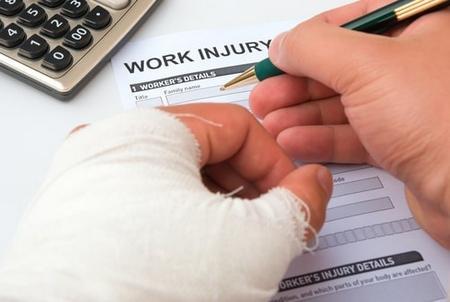Recent Blog Posts
Who Pays Credit Card Debt if We Get Divorced?
 As Americans struggle with inflation, supply chain issues, and rising prices, many are turning to credit cards to make ends meet. Credit cards can be a useful financial tool. However, credit card debt can quickly spiral out of control. According to a study by WalletHub, the average U.S. household has around $11,000 in credit card debt. When a household comes apart, that debt will have to be addressed one way or another.
As Americans struggle with inflation, supply chain issues, and rising prices, many are turning to credit cards to make ends meet. Credit cards can be a useful financial tool. However, credit card debt can quickly spiral out of control. According to a study by WalletHub, the average U.S. household has around $11,000 in credit card debt. When a household comes apart, that debt will have to be addressed one way or another.
If you are getting divorced, you may have many questions and concerns about credit card debt. How is credit card debt divided between spouses? Do we have to pay off our credit cards before we can divorce? What if a spouse promises to pay credit card debt and fails to do so? At Goostree Law Group, our St. Charles, IL divorce attorneys can help you address these questions and much more. We have garnered over 100 5-star reviews, so you can trust us to provide you with legal advice and guidance unique to your situation.
Illinois Does Not Recognize Palimony, Shared Property Rights of Cohabitants
 "Palimony" is a term sometimes used after an unmarried couple who lives together has ended a long-term relationship. There are different definitions for palimony because it is not an official legal term. It is just a combination of the words "pal" and "alimony."
"Palimony" is a term sometimes used after an unmarried couple who lives together has ended a long-term relationship. There are different definitions for palimony because it is not an official legal term. It is just a combination of the words "pal" and "alimony."
The basic definition of palimony is that it is the equivalent of spousal maintenance, or alimony, for unmarried couples. Some expand that definition to include each party’s right to shared assets from the relationship.
Illinois family law does not recognize palimony as a right between unmarried couples in 2026 the way it does recognize spousal support as a right between married couples. Instead, you can establish property claims by creating a cohabitation agreement. Our Kane County family lawyers can help.
Can a Divorce Judge Make You Take a Drug Test?
 Divorce cases involving children often raise difficult questions about parental fitness. When one parent suspects the other is using drugs or alcohol, they may ask the court to order drug testing. If you are facing allegations of substance abuse during divorce, understanding when and how judges can order drug testing is important.
Divorce cases involving children often raise difficult questions about parental fitness. When one parent suspects the other is using drugs or alcohol, they may ask the court to order drug testing. If you are facing allegations of substance abuse during divorce, understanding when and how judges can order drug testing is important.
Illinois divorce judges do have the authority to order drug tests when children are involved. If you are worried about drug or alcohol issues in your 2026 divorce, call our DuPage County divorce attorneys for help.
When Can a Judge Order Drug Testing in a Divorce?
Under the Illinois Marriage and Dissolution of Marriage Act at 750 ILCS 5/602.7, courts must consider each parent’s physical and mental health when determining custody and parenting time. Substance abuse falls under the category of "physical and mental health."
Can One Lawyer Handle a Divorce for Both Spouses?
 The CDC estimates that over 650,000 divorces happen every year. By some estimates, around 90 percent of those divorces are uncontested, meaning spouses are able to agree on everything before they file for divorce.
The CDC estimates that over 650,000 divorces happen every year. By some estimates, around 90 percent of those divorces are uncontested, meaning spouses are able to agree on everything before they file for divorce.
If you have recently made the decision to get a divorce, you probably have many questions. How much will divorce in Illinois cost? How long does it take to get divorced? What can I expect from my divorce? All of these questions are a normal part of figuring out the divorce process.
Many people facing divorce also ask themselves whether they really need a lawyer, especially if they want to file for an uncontested divorce. They worry that hiring an attorney will send the wrong message, or increase tension between them and their ex. Can’t you just hire the same attorney to represent both of you in your Illinois divorce?
What You Should Know About Non-Parent Visitation in Illinois
 After your divorce is finalized, you and your family will begin new journeys with a different way of life. When you and your ex-spouse share children, arrangements for parenting time and parental responsibilities must be made.
After your divorce is finalized, you and your family will begin new journeys with a different way of life. When you and your ex-spouse share children, arrangements for parenting time and parental responsibilities must be made.
These new arrangements create routines and lifestyles that may feel unfamiliar at first. While adjusting takes time, these changes often lead to happier and healthier homes for you and your children.
Your family situation may involve other important people besides yourself, your ex, and your kids. Grandparents, stepparents, siblings, and close family friends often play significant roles in children's lives. Understanding who can have visitation rights and how these arrangements work is often an important part of life after divorce or separation. Our Kane County child custody lawyers can explain more.
Who Decides Where a Child Goes to School After Divorce?
 Imagine this: You and your ex are divorced, and you disagree about where your child should attend school. You want your child to stay at their current school where they have friends and familiar teachers; your ex wants to enroll them in a different district. You both want to know who gets to make this decision.
Imagine this: You and your ex are divorced, and you disagree about where your child should attend school. You want your child to stay at their current school where they have friends and familiar teachers; your ex wants to enroll them in a different district. You both want to know who gets to make this decision.
Sound familiar? This is a very common scenario for couples with minor children who are still in school. Where a child goes to school, and when you can change that school, depends on what your divorce decree says about decision-making authority. Some parenting plans allow one parent to make all these decisions; other plans require both parents to agree before any major changes can be made.
If you and your child’s other parent are fighting about where your child goes to school, call our Yorkville, IL child custody lawyers. We will help you understand the terms of your parenting plan and, if the circumstances call for it, ask the court for permission to change your parenting plan so you have more say over your child’s education.
How Are Workers’ Compensation Benefits Treated in an Illinois Divorce?
 If you were injured at work, your workers’ compensation benefits may help you and your family stay financially stable. These payments can cover medical bills, lost wages, and therapy costs. What happens when a person who is receiving workers’ compensation benefits gets divorced?
If you were injured at work, your workers’ compensation benefits may help you and your family stay financially stable. These payments can cover medical bills, lost wages, and therapy costs. What happens when a person who is receiving workers’ compensation benefits gets divorced?
Illinois law has guidelines to help decide whether your workers’ compensation payments count as marital property. It also determines how they might affect child support or alimony. If you are in this situation, a St. Charles, IL divorce lawyer can help protect your rights and explain how the law applies to your case.
Are Workers’ Compensation Benefits a Marital Asset in Illinois?
In Illinois, most assets that you or your spouse acquire during the marriage are considered marital property. That means both of you have a legal interest in them. The Illinois Marriage and Dissolution of Marriage Act, in 750 ILCS 5/503, explains how marital property is defined and divided during divorce.
Five Factors When Dividing Vehicles in a Divorce
 For most families in the U.S., a vehicle is a necessity. It can even have an emotional element. When divorce is on the table, it may be a marital asset that must be divided among the spouses. Working with an experienced Kane County, IL divorce lawyer can help you avoid mistakes and ensure the division of vehicles and other property is fair and clearly documented.
For most families in the U.S., a vehicle is a necessity. It can even have an emotional element. When divorce is on the table, it may be a marital asset that must be divided among the spouses. Working with an experienced Kane County, IL divorce lawyer can help you avoid mistakes and ensure the division of vehicles and other property is fair and clearly documented.
What Do You Need To Consider When Dividing Your Vehicles in a Divorce
Dividing vehicles may seem simple if you own two cars. You might assume it is as easy as you take one, and your spouse takes the other. However, hidden factors like debt, ownership records, and vehicle value can make this process much more involved. If you and your spouse cannot reach an agreement, a judge will make the final decision based on all relevant details. Consider some questions that can guide you through this process.
Is the Vehicle a Marital or Separate Property?
10 Great Apps for Divorcing Parents
 Divorce changes your family dynamic. You may need help finding ways to plan schedules, share information, and stay in touch with your co-parent. The right tools can make this easier. Today, parents often use apps to keep communication clear and reduce stress. These apps can also help you keep accurate records and avoid arguments.
Divorce changes your family dynamic. You may need help finding ways to plan schedules, share information, and stay in touch with your co-parent. The right tools can make this easier. Today, parents often use apps to keep communication clear and reduce stress. These apps can also help you keep accurate records and avoid arguments.
Below are 10 helpful apps that many divorcing parents use to stay organized and reduce conflict. To learn more about your rights and build a parenting plan that works for your family, contact Goostree Law Group. Our Wheaton, IL child custody lawyer has walked many families through the custody process and can help you work out any issues.
AppClose: Best for All-in-One Free App for Co-Parenting Tools
AppClose gives parents many helpful tools for free. You can message the other parent, share calendars, and keep track of expenses all in one place. The app saves every message and does not allow you to delete or edit them. This helps avoid confusion later and keeps communication professional. You can also create shared task lists so both parents know what needs to be done.
How Much Child Support Do You Pay if You Become Unemployed?
 Losing a job is one of the most stressful experiences in life, especially for parents who are raising children. If you have recently become unemployed, you may be wondering what happens to your child support obligations and whether unemployment payments cover the cost of child support.
Losing a job is one of the most stressful experiences in life, especially for parents who are raising children. If you have recently become unemployed, you may be wondering what happens to your child support obligations and whether unemployment payments cover the cost of child support.
In Illinois, parents are still responsible for supporting their children even when their income changes. However, the law allows for parents to change their child support orders when a substantial change in financial circumstances occurs, such as job loss or reduced hours. Acting quickly and following the correct procedures can make a major difference in how much you owe and how soon your payments can be adjusted.
At Goostree Law Group, our St. Charles child support lawyers help parents file for modifications, calculate new payment amounts, and protect themselves from child support enforcement while unemployed.












